Photo: Hart Lëshkina
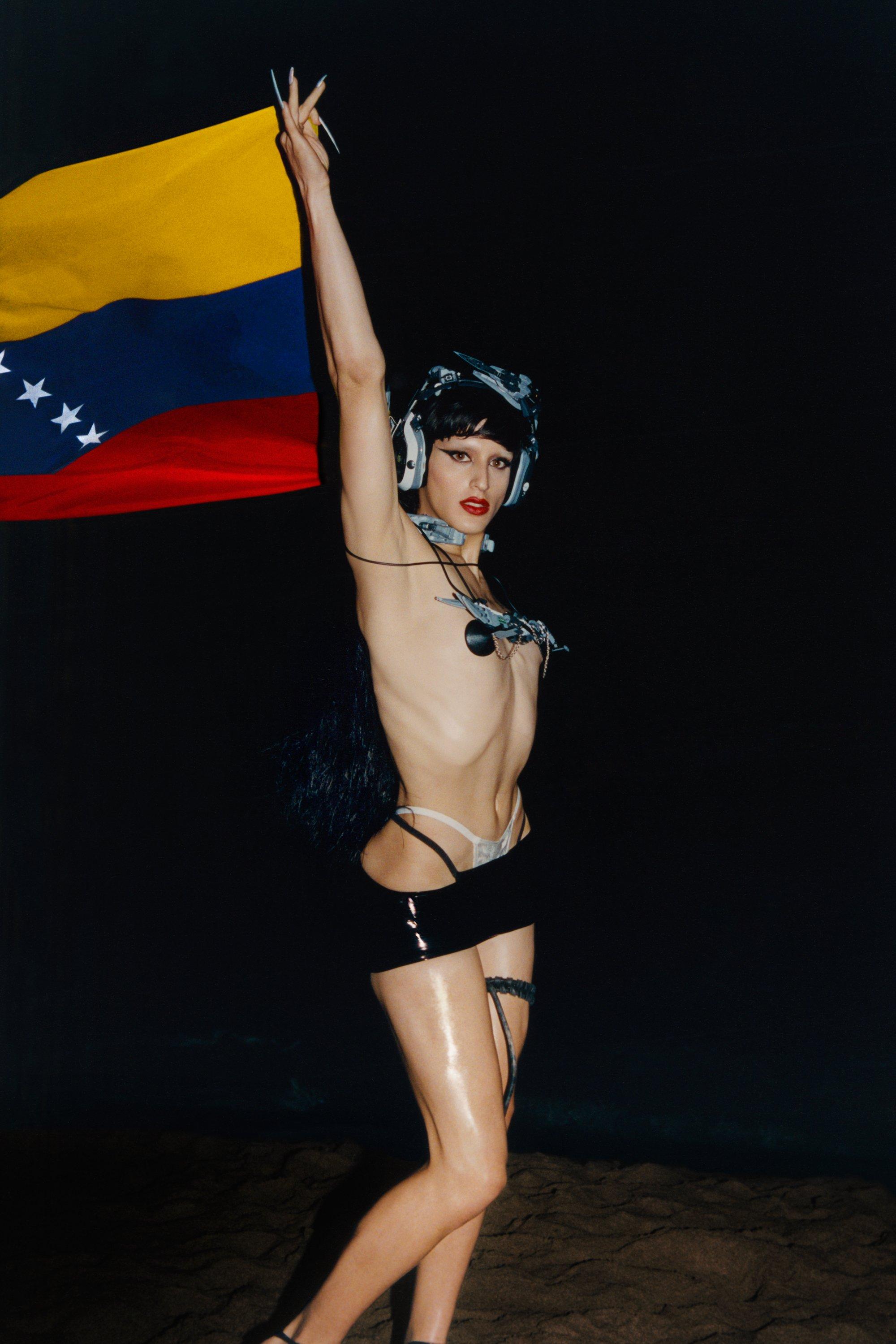
Arca
news
Meet The First-Time GRAMMY Nominee: Arca Is Expanding Latin Music On Her Terms With Electronic Album ‘KiCK i’
Electronic artist Arca's poppiest album yet, 'KiCK i,' expands Latin music outside its traditional boundaries—and now she has a GRAMMY nomination for it
Last year saw the demise and birth of many worlds. But despite the upheaval, Alejandra Ghersi, the avant-garde electronic music artist known as Arca, streamlined her approach and delivered her most palatable album yet, KiCK i.
Fans of the singer/songwriter and producer know her for her boundless, experimental approach to music-making. Her textured sound design includes instrumentals, futuristic effects and haunting, ceremonial vocals. KiCK i, released June of 2020, is an out-of-this-world bilingual sonic experience that marries the two sounds that raised her: electronic music and reggaeton.
<style>.embed-container { position: relative; padding-bottom: 56.25%; height: 0; overflow: hidden; max-width: 100%; } .embed-container iframe, .embed-container object, .embed-container embed { position: absolute; top: 0; left: 0; width: 100%; height: 100%; }</style><div class='embed-container'><iframe src='https://www.youtube.com/embed/AZKPd3k6O6A' frameborder='0' allowfullscreen></iframe></div>
To the Barcelona-based, Venezuelan-born artist, reggaeton and electronic music are one and the same. Reggaeton relies "on the loop of electronic instrumentation," she explains via Zoom. With this album, Arca is taking Latin music’s biggest sound to new dimensions outside of the traditional Latin music world.
The intent is GRAMMY-worthy. KiCK i is nominated for Best Dance/Electronic Album at the 2021 GRAMMY Awards. And it has a place on the dancefloor—hip-shaking tracks like "KLK" with Spanish sensation Rosalía and Venezuela’s Cardopusher are pop songs at their core even as Arca maintains her experimental vision.
The album's 12 songs mix reggaeton’s infectious rhythms with heavy, emotive synth sounds and robotic vocals. And the complex themes of identity in tracks like "Nonbinary" and "Machote" are as relevant and cutting-edge as the sound itself. She’s known for her contradictory nature—when asked about the songs, she responds, "There are times where it feels pleasurable and right to indulge in the binary, and there are times where it feels pleasurable and right to indulge in not having to put everything into one of those two boxes."
Recently, Arca spoke with GRAMMY.com about how her transition influenced the expansion of her sound on KiCK i, working with the late singer/producer Sophie on the album and creating reggaeton with Rosalía.
This interview has been edited and condensed for clarity.
What about the creative process or the creating process gets you excited?
It tends to be the part of making a song or being on set where I'm not in control of what the outcome will be. My favorite part of making something is not necessarily the part that entails having a vision and figuring out how to execute it, but rather the element of surprise that emerges when there's maybe a beautiful mistake or an accidental discovery.
So you don't mind not being in control?
Oh, I crave that. I think in my day-to-day, I want to be in control of my feelings or my practice.
What drew you to electronic music?
I have a brother seven years older, and I would often borrow his music—sometimes without permission. I think his musical tastes left a big influence on me. He had a lot of Aphex Twin, Squarepusher. He had a few Björk records that were very formative in my musical heritage [and] instruction.
Also, I loved electronic music on the radio. Pretty much all the musical genres that I gravitated to when I was a kid were electronic in some way—even if it was like future-leaning R&B. There was [also always] reggaeton on the radio in Venezuela. I considered reggaeton electronic music.
That’s interesting. Tell me more.
It really does rely on the loop of electronic instrumentation.
Before I come back to that thought, I want to get into your music. Your last album, Arca, was experimental. KiCK i is a bit more pop. How did that shift happen?
I can't answer that without mentioning the beginning of my transition. I think the self-titled record was more of like a swan song, as if I was letting go or mourning. When I wrote that record, I was walking in a cemetery every day by my house. It was pretty goth. Beyond emo. After that, I came to terms with a few things and decided to share them with the world.
The immediate result was something more celebrational. I didn't really want to preach to the choir, so to speak. There was a focused intention to try to reach people that might not share the same views as me—but to entice them or invite them by making something beautiful enough or entertaining enough that would compel people to think about the fact that we're each kind of mutants in our own way.
At the same time, we're all brought together in being unique. I don't know how to explain it. I think it's something that's more a result of living and finding a queer family after I left Venezuela when I was 17 years old. The values and the ways of making a new family or finding yourself to be part of a community that you didn't realize existed, it all ties into the reasons why the record sounds so different.
<style>.embed-container { position: relative; padding-bottom: 56.25%; height: 0; overflow: hidden; max-width: 100%; } .embed-container iframe, .embed-container object, .embed-container embed { position: absolute; top: 0; left: 0; width: 100%; height: 100%; }</style><div class='embed-container'><iframe src='https://www.youtube.com/embed/gfGz4MTQ28I' frameborder='0' allowfullscreen></iframe></div>
You mentioned people who have different values than you, and then you cited queerness. Is that what you mean by people who have different views?
Definitely, but only because I think everyone is queer. You can self-identify as queer or not, but I think we're all on a spectrum.I don't think it should be something exclusive. It should be something inclusive. I think also each individual has multiple souls. That's something that I talked about a lot on Kick I—that we all have more than one state.
I want to make space for each of those to be able to coexist in the same space, not just tolerate each other, but in a harmonious way. I think queerness isn't something that should make anyone feel like an outsider. If anything, it should make everyone feel like part of the same thing.
You have a song called "Nonbinary," but you also have a song called "Machote," which means "man" in Spanish. Why did you decide to name the songs that?
I didn't want to force people into thinking that by being non-binary, you're renouncing the heritage and tradition of these charges between masculinity and femininity. If anything, I wanted each woman to recognize the man inside them and each man to recognize the woman inside them. The words "woman" [and] "man" mean different things to each person.
My idea was that you can know who you are without needing to only choose one side of you. It's like the sun and the moon. I want it to have the pleasure and the joy and the sparks that can fly off of the tension between hyper-masculinity and hyper-femininity in the case of "Machote."
At the same time, there are instances where thinking in terms of masculinity and femininity as a binary might not be useful. I was trying to have my cake and eat it too. There are times where it feels pleasurable and right to indulge in the binary, and there are times where it feels pleasurable and right to indulge in not having to put everything into one of those two boxes.
It was a very nuanced message and a layered one that I understood was contradictory upon the moment of sharing it. That was kind of the point.
How did reggaeton and trap make it into the album?
Part of the lifeblood that has nurtured me was music that I heard on the radio. Music that reached me, through not just academic and performance, in more of a popular sense. One of the contradictions I like to relish in is to not think of my practice as academic, but also not to think of it as just entertainment.
<style>.embed-container { position: relative; padding-bottom: 56.25%; height: 0; overflow: hidden; max-width: 100%; } .embed-container iframe, .embed-container object, .embed-container embed { position: absolute; top: 0; left: 0; width: 100%; height: 100%; }</style><div class='embed-container'><iframe src='https://www.youtube.com/embed/RDzyyTHLQfo' frameborder='0' allowfullscreen></iframe></div>
Did you plan on making the track of the Rosalía reggaeton since the beginning?
No. Actually, that's not the first song that we've made together. It just happened to be the first song we've been able to share. I'm glad that ["KLK" is] the first one because I'm really proud of it. I hope the other ones make it too, but at the same time, I don't think that our sound has to be shared with an audience for it to be real or for it to mean something.
I'm happy that we've made songs. Whether or not they see the light of day and are shared with audiences is secondary, almost, but I love her so much.
What about the song makes you proud of it?
I want to mention Cardopusher. It was between the three of us that the song came to be. So, I want to do more than a shout-out. I think the lifeblood of that song, the melody that is very hypnotic and has given the song so much of its energy was Cardopusher’s musicality. It's not just Rosalía. It's Rosalía, Cardopusher and I.
It's very important because the collaboration feels like a triangle. I've known him since I was, like, 14 years old. He was and is a local hero in the scene of Caracas. So, I'm proud for, I guess, being a bridge too, between Cardopusher and Rosalía. I'm proud to be a part of that song.
I'm proud because those are the rhythms that Luis and I grew up with, and I know Rosalía really appreciates them too. I love the song because I think it's infectious, but not 100 percent digestible in a pleasant way.
I have noticed that about your music. Some things about it are more poppy and accessible than others. Are you ever concerned about it not being palatable enough for broader audiences?
All the time. It's my nightmare to think that I might make something that means much more to me than it could mean to an audience. I always want to make it possible for people to have their own reading of things without making it sound too abstract. That's something I find myself never figuring out.
Your music is at the intersection of so many things. You're creating a new space for Latinx music outside its traditional boundaries. Do you think so too?
That's the goal. I don't know if I can answer that. I think that's for other Latinx musicians to answer, but that is honestly the goal.
And I think that your music is necessary for that—to push those audiences.
Bless you, for saying so. Thank you.
On the album, you worked with Sophie as well. What did working with Sophie mean to you?
It meant a lot. It's an emotional subject because it's very recent that she passed, and I find myself still processing the emotional side of that. What I can say right now, honestly, that I feel nothing short of an honor to have been able to make music with her and have that connection and be a part of my life for many years.
We met each other before either of us transitioned, so there was this very profound parallel and also similarities and also contrasts. I think Sophie is a genius. Period. She will forever remain someone that inspires me. We had so many plans. We were making so many plans to tour together.
The track with Sophie, "La Chiqui," is more experimental than some of the others. What do you enjoy about playing with sounds?
I like the idea of combining things that haven’t been combined: languages, good print, times, different eras, different materials, even fantasy worlds, like science fiction versus fantasy. Maybe even interpreting traditional things with more contemporary leanings, or interpreting more contemporary ideas through traditional classical beauty.
I try to find combinations that surprise me and hopefully can produce a sense of wonder. Or, at least, inspiration.
<style>.embed-container { position: relative; padding-bottom: 56.25%; height: 0; overflow: hidden; max-width: 100%; } .embed-container iframe, .embed-container object, .embed-container embed { position: absolute; top: 0; left: 0; width: 100%; height: 100%; }</style><div class='embed-container'><iframe src='https://www.youtube.com/embed/0MNQLJUXrx8' frameborder='0' allowfullscreen></iframe></div>
This album is nominated for a GRAMMY. How do you feel about that?
I’m still pinching myself. I can't say that I've taken it all in. Interviews like this one are what help it feel more real because I didn't even know that was possible.
When the label mentioned that it was nominated, I wasn't even told that it was a possible candidate. It's a great honor because I've studied not just music, but the history of recorded music. The GRAMMYs are very much about albums, which is a format that I'll always believe in. And then to have the recognition and the honor of it being nominated for me is already more than enough. It just gives me a lot of fuel to keep doing what I'm doing as best as I can.
Outside of your music, what do you want to be known for?
That’s a big question. I want to be known for not ever fully being known. I'd like to remain something of a mystery. I'd like to make it so that if you study my tracks, or the gestures, or the decisions that I took throughout the course of my career as a musician or as an artist working in more than one medium, it would be to make it hard for people to reverse-engineer and figure out who I was without hiding from people.
To find this place where people can feel like they don't have to know exactly who I was in order for my work to mean something to them—that would make me happy.
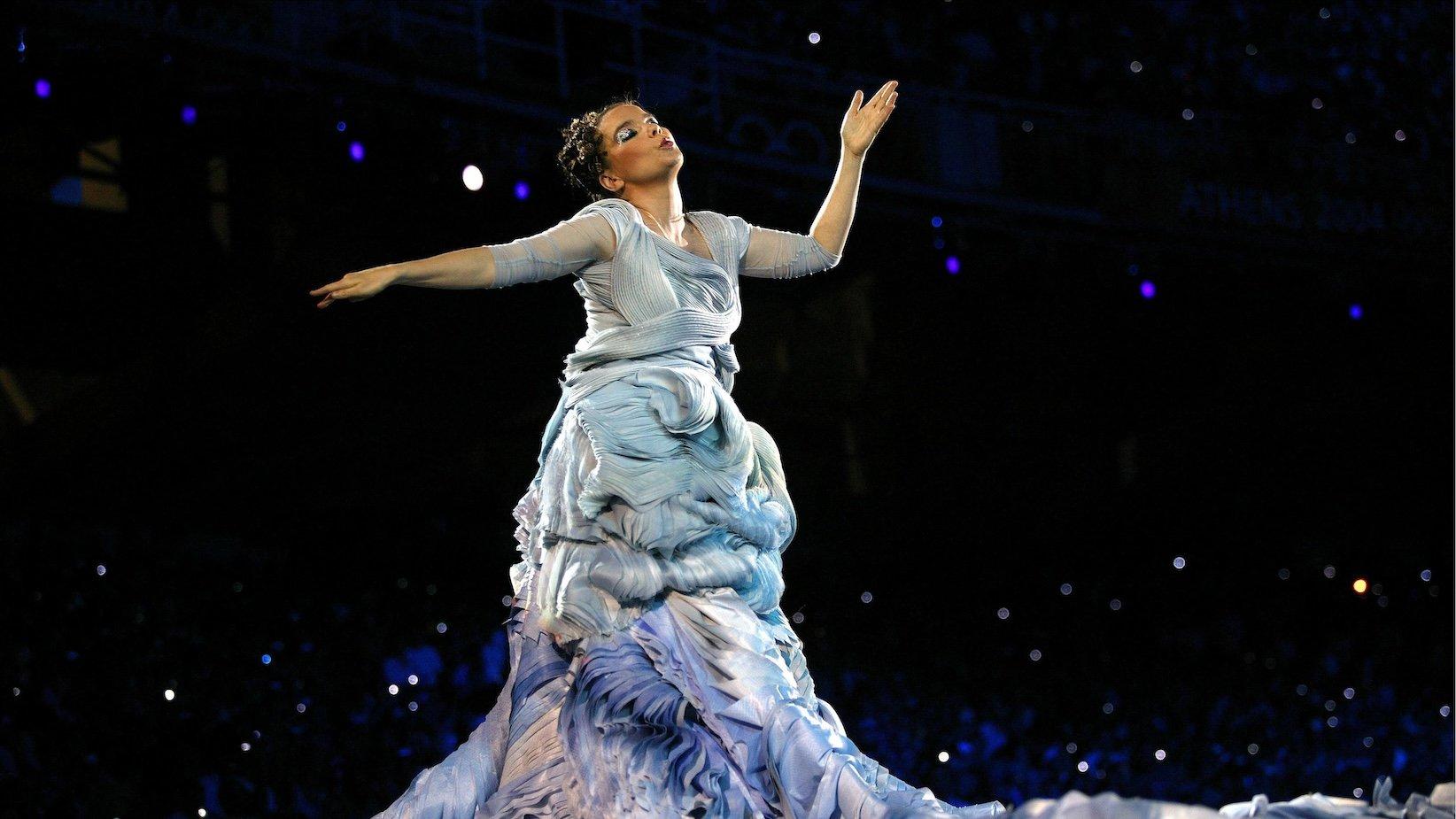
Photo: Mick Hutson/Redferns
list
When The GRAMMYs & Olympics Align: 7 Times Music's Biggest Night Met Global Sports Glory
Before the Olympic Games begin in Paris on July 26, dive into the intertwined history of gold medalists and golden gramophones.
The GRAMMY Awards and the Summer Olympics are unarguably the pinnacles of their respective fields. Indeed, most recording artists dream of making an acceptance speech for their magnum opus during the biggest night on the music industry calendar, while athletes competing in any of the Games’ 32 different disciplines are continually motivated by the lure of the podium.
But how often have the two intertwined since the first GRAMMY ceremony took place a year before Rome 1960?
Well, perhaps more than you think. Sure, the musical efforts from basketballers Shaquille O’Neal (gold at Atlanta 1996), Kobe Bryant (gold at Beijing 2008 and London 2012), and Damian Lillard (gold at Tokyo 2020) might not have registered with the Recording Academy. Likewise, those from track and field hero Carl Lewis (nine golds and one silver from four consecutive Games), light middleweight boxer Roy Jones Jr. (silver at Seoul 1988), and near-superhuman sprinter Usain Bolt (eight golds from Beijing, London, and Rio 2016).
But there are a handful of sportsmen (sadly, not yet sportswomen) who have competed for both gold medals and golden gramophones. There are also pop stars who have attempted to capture the blood, sweat, and tears of the quadrennial spectacle in musical form — whether as an official anthem, television theme, or simply a motivational tool — and been rewarded with GRAMMY recognition for their efforts.
With the Olympics’ return to Paris just around the corner (July 26-Aug.11), what better time to celebrate those occasions when the Games and the GRAMMYs align?
Gloria Estefan & Björk's Themes Pick Up GRAMMY Nods
It seems fair to say that Gloria Estefan, the Cuban hitmaker who helped to bring Latin pop to the masses, and avant-garde eccentric Björk, wouldn't appear to have much in common. They have, however, both received GRAMMY nominations in the Best Female Pop Vocal Performance category for their respective Olympics themes.
Estefan was recognized at the 1997 ceremony for "Reach," the gospel-tinged power ballad that embodied the spirit of the previous year's Atlanta Games. Iceland's finest musical export picked up a nod for "Oceania," the swooping experimental number she co-produced with Warp label founder Mark Bell which helped to soundtrack the opening ceremony of Athens 2004. And both went home empty-handed, the former losing to Toni Braxton's "Un-Break My Heart" and the latter to Norah Jones' "Sunrise."
Whitney Houston's Momentous Live Performance
The incomparable Whitney Houston might not have added to her GRAMMY haul at the 1989 ceremony — Tracy Chapman's "Fast Car" prevented her from converting her sole nod, Best Female Pop Vocal Performance, into a win — but she still stole the show. Houston owned opened the 31st GRAMMY Awards with a performance of "One Moment in Time," the nominated track that had defined NBC's coverage of the Seoul Games.
Co-written by Albert Hammond, produced by Narada Michael Walden and featuring the London Symphony Orchestra, the UK chart-topping single certainly had a first-class pedigree. But it was Houston's lung-busting vocals that made the torch song such a sports montage favorite. The iconic diva once again stirred the emotions on the music industry's biggest night of the year with a rendition that's since become a staple of her many hits collections.
Oscar De La Hoya Swaps Ring For Recording Studio
Shakira fought off some interesting company to win 2001's Best Latin Pop Album GRAMMY. Alongside records from Luis Miguel and Alejandro Sanz, the category also included Christina Aguilera's first Spanish-language affair, and a bilingual effort from champion boxer Oscar De La Hoya.
The American became a national sensation overnight when he won the men's lightweight boxing gold at the 1992 Barcelona Olympics. But despite new material from seasoned hitmaker Diane Warren and a cover of Bee Gees' classic "Run to Me," his 13-track self-titled debut didn't exactly set the charts alight. Despite the GRAMMY nod, De La Hoya hasn't entered the recording studio since.
Muhammad Ali Is Recognized For His Way With Words
But when it comes to GRAMMY-nominated boxers, then the man who famously floated like a butterfly and stung like a bee is undoubtedly the don. Shortly before he changed his name from Cassius Clay to Muhammad Ali, the light heavyweight gold medalist of the 1960 Rome Games was recognized for his amusing repartee in the Best Comedy Performance category. Hailed by some as a progenitor of the rap artform, I Am the Greatest lost out to a man slightly different in stature: portly parodist Allan Sherman.
And the sporting icon also had to experience another rare defeat 13 years later when his reading of The Adventures Of Ali And His Gang Vs. Mr. Tooth Decay lost out to Hermione Gingold & Karl Böhm's Prokofiev: Peter and the Wolf/Saint-Saëns: Carnival of the Animals in 1977’s Best Recording for Children.
John Williams' Winning Olympic Fanfare
Legendary composer John Williams is one of the most-nominated artists in GRAMMY history having amassed 76 nods since his work on detective series "Checkmate" was recognized in Best Score Soundtrack for Visual Media in 1962. Two of his wins in this remarkable tally have been Games-related.
In 1985, Williams won Best Instrumental Composition for "Olympic Fanfare and Theme," which he wrote and arranged for the Los Angeles Games the year prior. In 1989, the conductor received a nod in the same category for "Olympic Spirit," another majestic instrumental produced for NBC’s coverage of Seoul '88.
Interestingly, Wiliams isn't a particularly avid sports fan, but as he told The New York Times, he can still relate to those going for gold. "The human spirit stretching to prove itself is also typical of what musicians attempt to achieve in a symphonic effort."
Magic Johnson’s Educational Guide Wins Best Spoken Word Album
Basketball appears to produce more aspiring musicians than any sport. Marvin Bagley III, Lonzo Ball, and Brandon Clarke are just a few of the NBA names to have released albums in the last few years. But the only time a hooper has been recognized at the GRAMMYs is for an audiobook.
The year before guiding Team USA to the men's basketball gold at Barcelona 1992, Magic Johnson had bravely revealed that he'd contracted HIV, defying the stigma that surrounded it at the time. The year after his Olympic triumph, the iconic shooting guard was honored for joining the fight against the disease. Johnson won the Best Spoken Word or Non-Musical Album GRAMMY for What You Can Do To Avoid AIDS, a compassionate guide designed to educate the youth of America whose proceeds went to the sportsman's eponymous foundation.
Chariots Of Fire Is Nominated For Record Of The Year
Based on the real-life exploits of British runners Harold Abrahams and Eric Liddell at the 1924 Paris Olympics, period drama Chariots of Fire won Best Picture at the 1982 Oscars. But it’s the titular number from Vangelis' anachronistic synth-based score that remains its crowning glory.
First played as the aspiring Olympians train beachside in the slow-motion opening flashback, the instrumental not only topped the Billboard Hot 100, it also picked up a GRAMMY nod for Record of the Year. "Chariots of Fire" has since become synonymous with the more modern iteration of the Games, appearing in the BBC's coverage of Seoul '88, gracing the start of the men's 100m final at Atlanta '96, and perhaps most famously of all, being performed at London 2012's opening ceremony by none other than Rowan Atkinson's rubber-faced buffoon Mr. Bean.
Read more: 10 Essential Vangelis Albums: Remembering The Electronic Music Pioneer
Latest News & Exclusive Videos

2024 Paris Olympics Opening Ceremony: Watch Celine Dion, Lady Gaga, Gojira & More Perform

Ice Spice Is The Drill Queen On 'Y2K!': 5 Takeaways From Her Debut Album

New Music Friday: Listen To New Songs From Halsey, MGK And Jelly Roll, XG & More

Watch Young MC Win Best Rap Performance In 1990

The Red Clay Strays Offer A New Kind Of Religion With 'Made By These Moments'
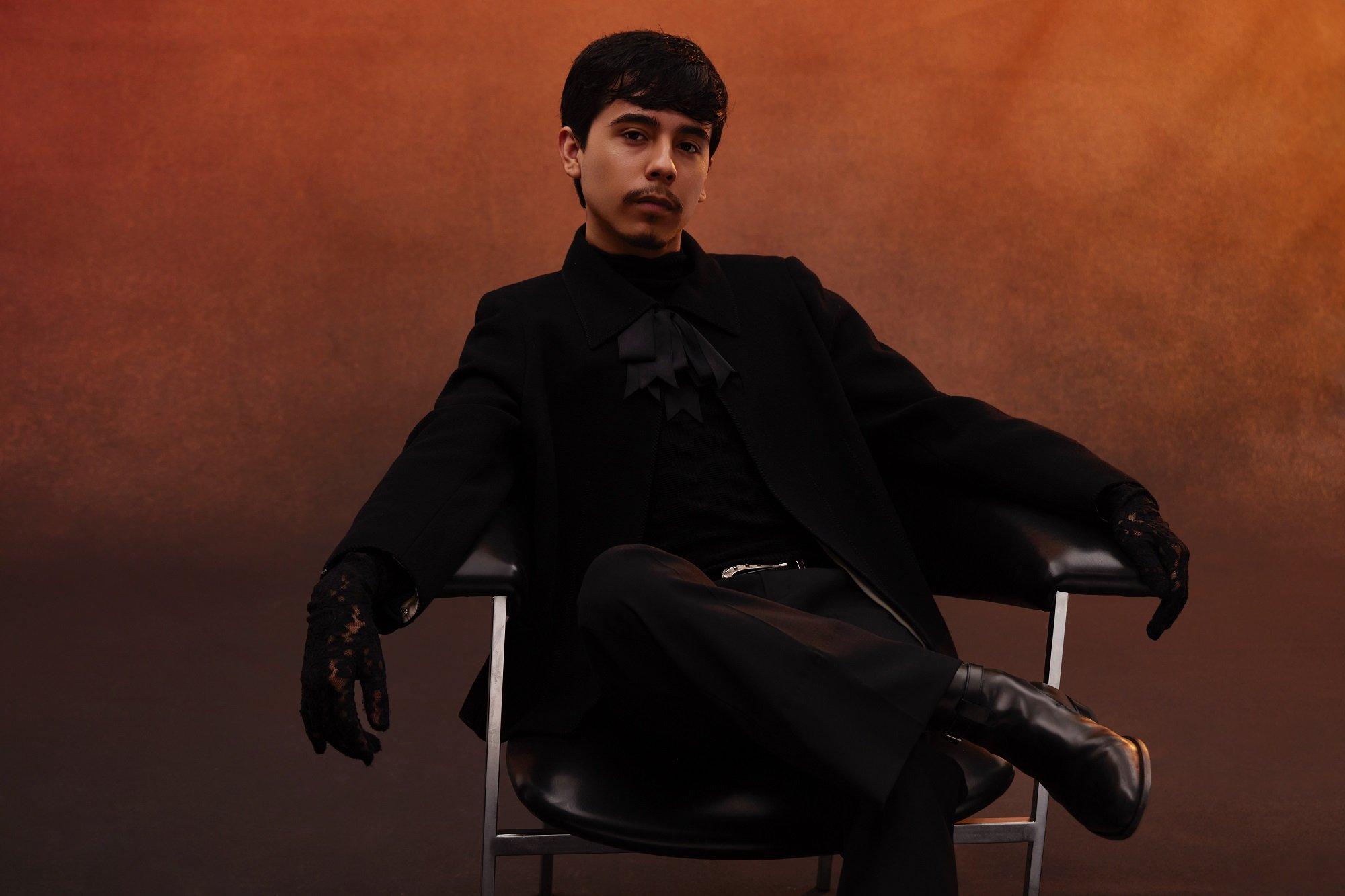
Photo: Le3ay Studio
interview
On 'Mirada,' Ivan Cornejo Redefines The Sound Of Sad Sierreño And Helps Fans Heal Through Music
Ivan Cornejo has always found solace in music. With his new LP, 'Mirada,' he wants his fans to experience that sense of belonging: "I write about emotions that everyone goes through or has been through."
Within the landscape of Música Mexicana, Ivan Cornejo is a rarity.
The 20-year-old California native stands out as one of the most intriguing acts in a genre represented by artists known for their flashy looks and music. Soft-spoken and warm, Cornejo's gentle demeanor effortlessly translates into his music and on-stage persona and musical productions.
Cornejo's songs and lyrics are far removed from the "corridos tumbados" that have taken over global charts. Fans have dubbed the Mexican American singer the "Gen Z therapist" because of his heartbreak-influenced lyrics and dexterity in creating the ethereal, melancholic sound known as sad sierreño.
With two albums under his belt, Cornejo makes his major label debut with Mirada, released on July 18 via Zaragoza Records / Interscope. The album features the wistful, sad sierreño sound that made Cornejo famous three years ago with "Está Dañada," a heart-wrenching ballad from his first LP, Alma Vacía (2021).
In the single, which has amassed over 270 million streams on Spotify, Ivan — then 17 — captivated listeners with powerful melodies accompanied by languid and nostalgic vocals, reciting verses filled with maturity beyond his years.
In Mirada, the Música Mexicana breakout star presents 12 solo songs inspired by summer nights, including singles "Aquí te Espero," "Donde Estás," "Baby Please," and "Intercambio Injusto." As with his previous productions, Cornejo makes heartbreak the central theme of his album while guitars and melodies reminiscent of alternative rock take center stage.
While the album doesn’t feature additional artists, Cornejo opened up to collaboration within the studio. The singer, used to collaborating solely with his producer, Frank Rio, encountered a challenge when bringing two additional creatives into the studio.
"The process for this new project was very different," Cornejo tells GRAMMY.com in a Zoom interview from Mexico City. "[Having other] creatives in the studio [resulted] a lot of learning. For example, my producer and I learned a lot from each other; we had constructive disagreements. We heard each other's opinions and learned a lot from this project."
The rising sad sierreño star discusses with GRAMMY.com the creative challenge of Mirada, the artistic boundaries he pushed along the way, the advantage behind bilingual songwriting, and the unexpected singer that influenced his lyrics.
This interview has been edited for length and clarity.
'Mirada' feels very personal, almost like a diary. How would you describe the album's overall theme and feeling?
While writing and recording this album, I wanted it to feel very personal, intimate, and gentle but with a little more uplifting sound.
I wanted the Mirada theme to feel like a nostalgic summer night. I want people to feel like they can play these songs on the beach, with friends, or alone in bed. I wanted it to feel a little euphoric.
The record showcases a blend of Latin and Anglo influences. Tracks like "Baby Please," "Dónde Estás," and "Aquí te espero" have a rock ballad feel. What inspired this fusion?
My influences come through a lot. I remember listening to my sister's and brother's music at eight while my parents would play classical regional Mexican music, like mariachi and corridos. As I grew up and started making music, it meshed into this sad sierreño and this funky Spanish alternative [genre].
The guitar is a staple in your sound. How did it become so central to your musical expression?
I started playing the guitar when I was about seven. I fell completely in love with the instrument. My mom tried to put me in violin classes, and I learned the instrument for a while, but the guitar kept winning me over. I kept learning more and more about the guitar, and around 12, I started learning songs by Radiohead, Arctic Monkeys and Tame Impala, and that's where my music emerged.
Mirada portrays the nostalgia around summer nights. How were those nights for you?
I spent it with my friends, making a bonfire and hanging out at the beach, pool, or jacuzzi.
Those nights when you just put your phone away and let the wind hit you and talk about your feelings, your thoughts are different, that kind of night.
What kind of music did you listen to on those summer nights?
Last summer, I listened to [Bad Bunny’s] Un Verano Sin Ti; [that album] was No. 1 on my playlist.
The year before, I listened to just any vibey music, like Arctic Monkeys, Tame Impala, or Radiohead, when I was alone. Cigarettes After Sex, I listened to them a lot during the summer when I was going to sleep. I always put them on.
You say that each track on this album is pushing the boundaries of your art. In what aspect are you breaking those barriers?
I go back to my last two albums [Alma Vacía and 2022’s Dañado,] and I want to grow as an artist and musician every time I listen to them.
Every time we enter the studio, [my producer] Frank Rio and I try our best to push the limits for ourselves and keep growing as artists. Vocally, musically, instrumentally, [we're] trying our best to make things sound even better.
How do you achieve that? Do you take vocal references from singers you like? Instrumentally, how do you break patterns within the genre?
Sometimes, when I feel something is missing from a song or I want to do something but don't know how to listen to a bunch of music that I think [is similar].
For example, each song on Mirada has a very different style. Depending on the style of the song, I’d listen to genres, styles, or certain ways that artists sing that match that song. Listening to those songs gives me ideas; it's like combining those ideas.
Vocally, for example, if I don't know how to sing a specific word or note, I listen to references and try to combine them in the best way possible.
Your lyrics show maturity beyond your years. Do you consider yourself an old soul?
Yes, I'm an old soul, for sure. When I was 7 years old, my brother would play Johnny Cash songs, and I was right behind him listening to them, downloading all the songs. I remember that for a while, I would go to sleep listening to Johnny Cash for an entire year.
Read more: Meet The Gen Z Women Claiming Space In The Regional Mexican Music Movement
Your song often references therapy sessions, and your fans even consider you the therapist of an entire generation. Do you feel that way?
I never realized my music had that effect. I would read comments saying, "Oh, he healed me" or, "I feel better now," or "he's my therapist, he's my comfort artist." That gave me a lot of joy because my music touched my fans in a very emotional way.
[Those comments] gave me the great idea of naming my [last] tour "Terapia." [Going to a concert] It's like you go to a therapist and you hear them. It all made sense. I hope my music is therapy for a lot of people.
Have you ever been to therapy yourself?
No, I have not. But... I should go. [Laughs.]
How do you articulate emotions clearly in your songs, especially without formal therapy experience?
I write about emotions that everyone goes through or has been through. And I try to write it in a way that sounds fresh and new. Also, melodies are very important because you can say something; depending on the melody, it can change your feelings. I try my best to make it hit the heart melodically and lyrically.
What about Spanish led you to express heartbreak in this language?
I was very inspired by Mexican music because there's something about the sound and the language that is very romantic. For example, there are some phrases in English that you might translate to Spanish, and they sound better in Spanish. Since my first language is English, I can translate them into Spanish and make them sound better and more emotional.
I try to write [songs first] in Spanish, but from time to time, when I get stuck, I start thinking in English. I try to think of just lyrics, and I'm like, okay, that's a cool lyric; how do I make it fit into this? And then, if it doesn't work, I'll try another one and another one until something works, or I get an idea in English, and it just works in Spanish.
[Being bilingual] gives you two perspectives, which helps a lot in the writing process.
What does it mean to you to represent Mexican American culture through your music?
It feels like you're put on a pedestal and have to be a role model. Being part of two cultures is a blessing, because you have two sides and perspectives. I'm very lucky to be here in Mexico and to learn about Mexican culture while still being from the United States and learning from American culture.
Did you feel you fit in when you were growing up?
No. At first, no. I was very shy.
Did music give you that sense of belonging?
Yeah, for sure. It gave me relief as I fit somewhere, and my voice was being heard. [It makes me feel] like I have support and people are [rooting for] me, and it helps me feel a bit understood.
As you enter your twenties and deal with growing fame, do you feel pressure being labeled as the voice of a generation?
I feel the pressure of being a role model, but it's a good kind of pressure. It helps me to make sure that I'm always giving my all. It's almost like motivation; I have to keep trying my best every time to be a role model.
It helps me to ensure that I'm always giving 100 percent and that it's like motivation, too. I have to keep trying my best each time to be a role model.
You sold out the mythical Houston Rodeo in April. How did singing to a crowd of 72,000 make you feel?
[Selena] and Johnny Cash are many of my favorite artists and artists that I look up to [have performed there]. It was a complete honor to play the Houston Rodeo and one of the scariest things I've ever done. [Laughs.]
It was scary at first. But when I realized that there were a good number of fans, I took out my in-ears, and I heard nearly the whole stadium singing back to me. It was such a beautiful and unforgettable night for me. It was a crazy experience.
The Latest News About Latin Music
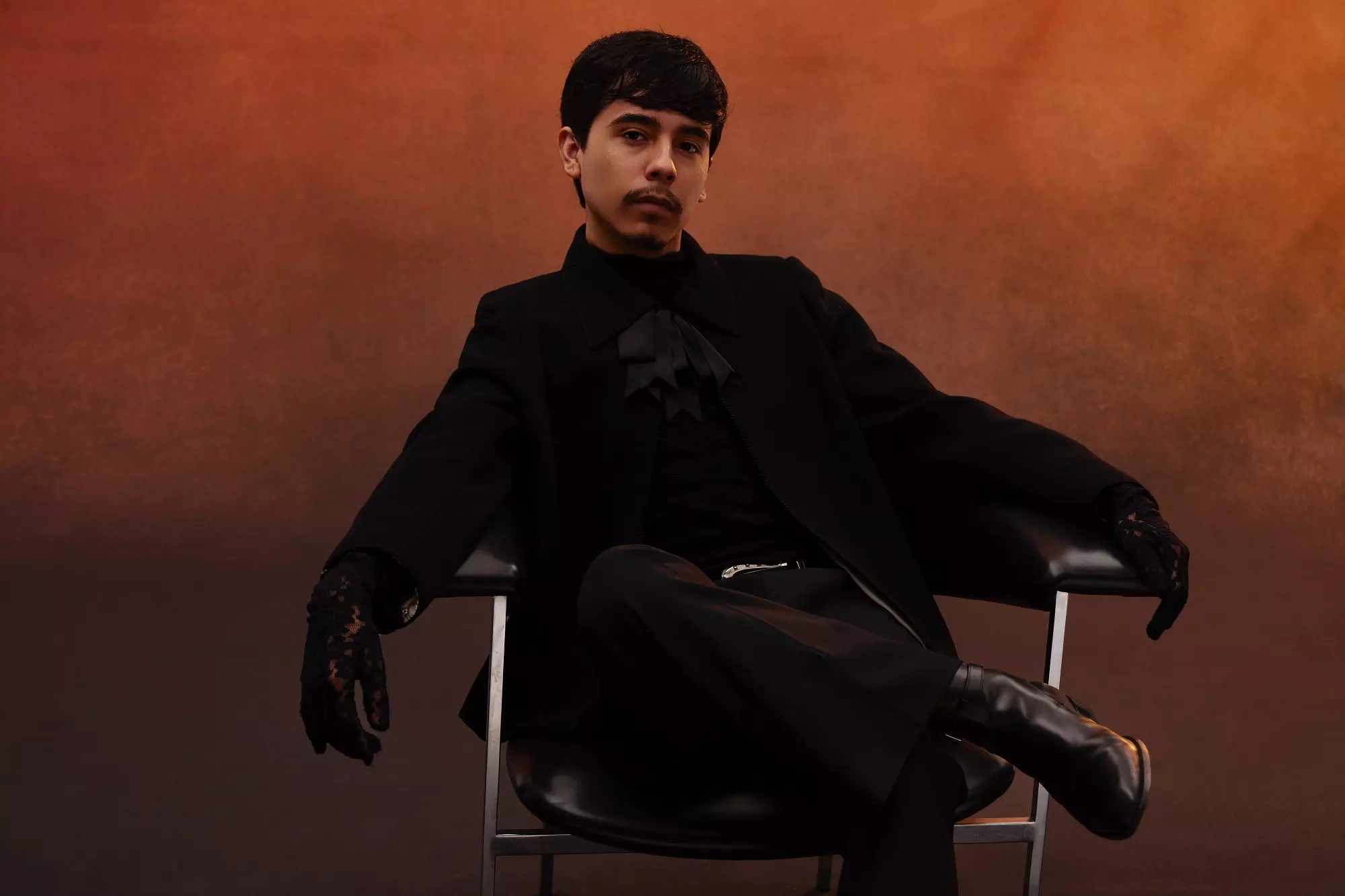
On 'Mirada,' Ivan Cornejo Redefines The Sound Of Sad Sierreño And Helps Fans Heal Through Music
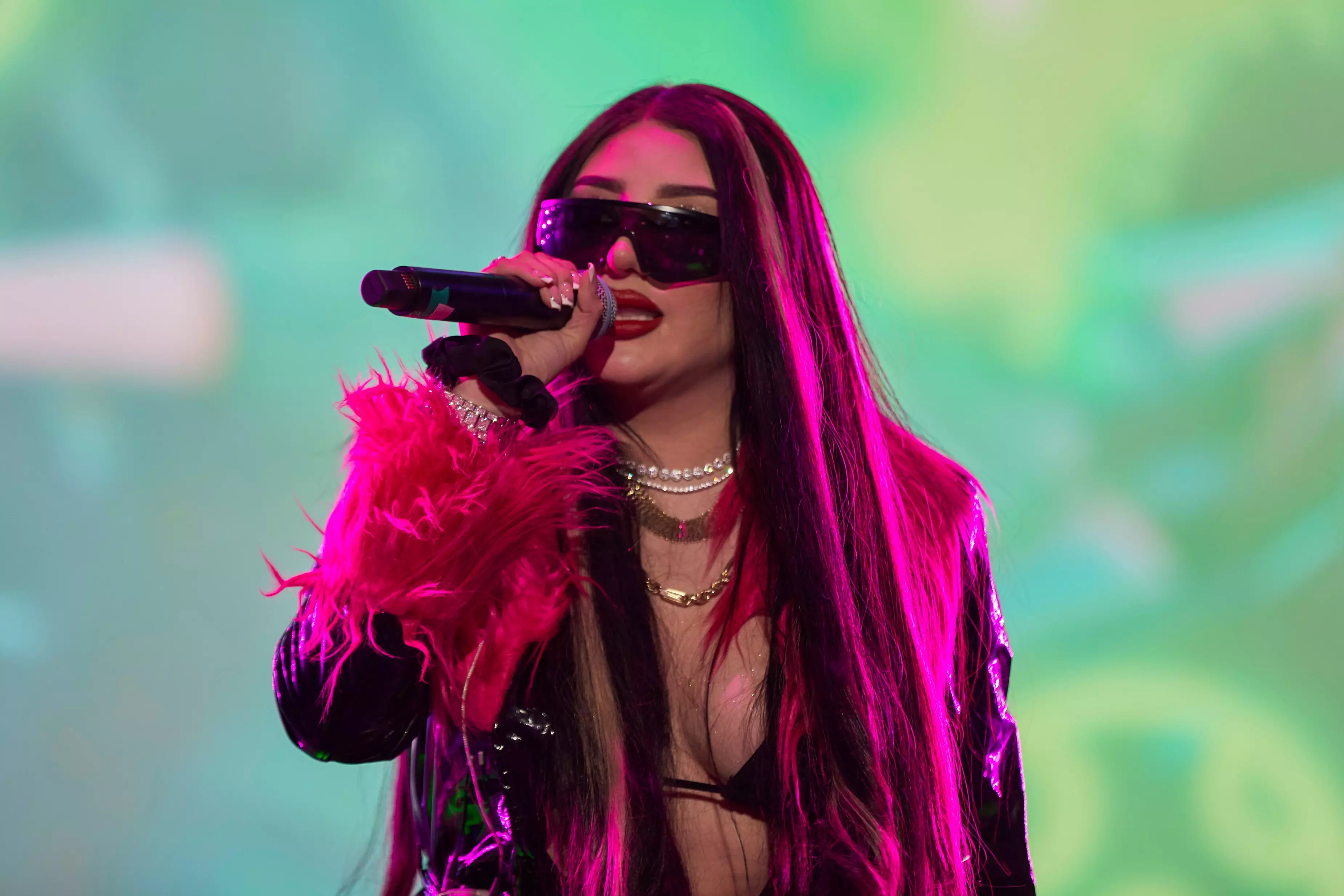
7 Artists Bringing Reggaeton Mexa To The World: El Malilla, Bellakath & More
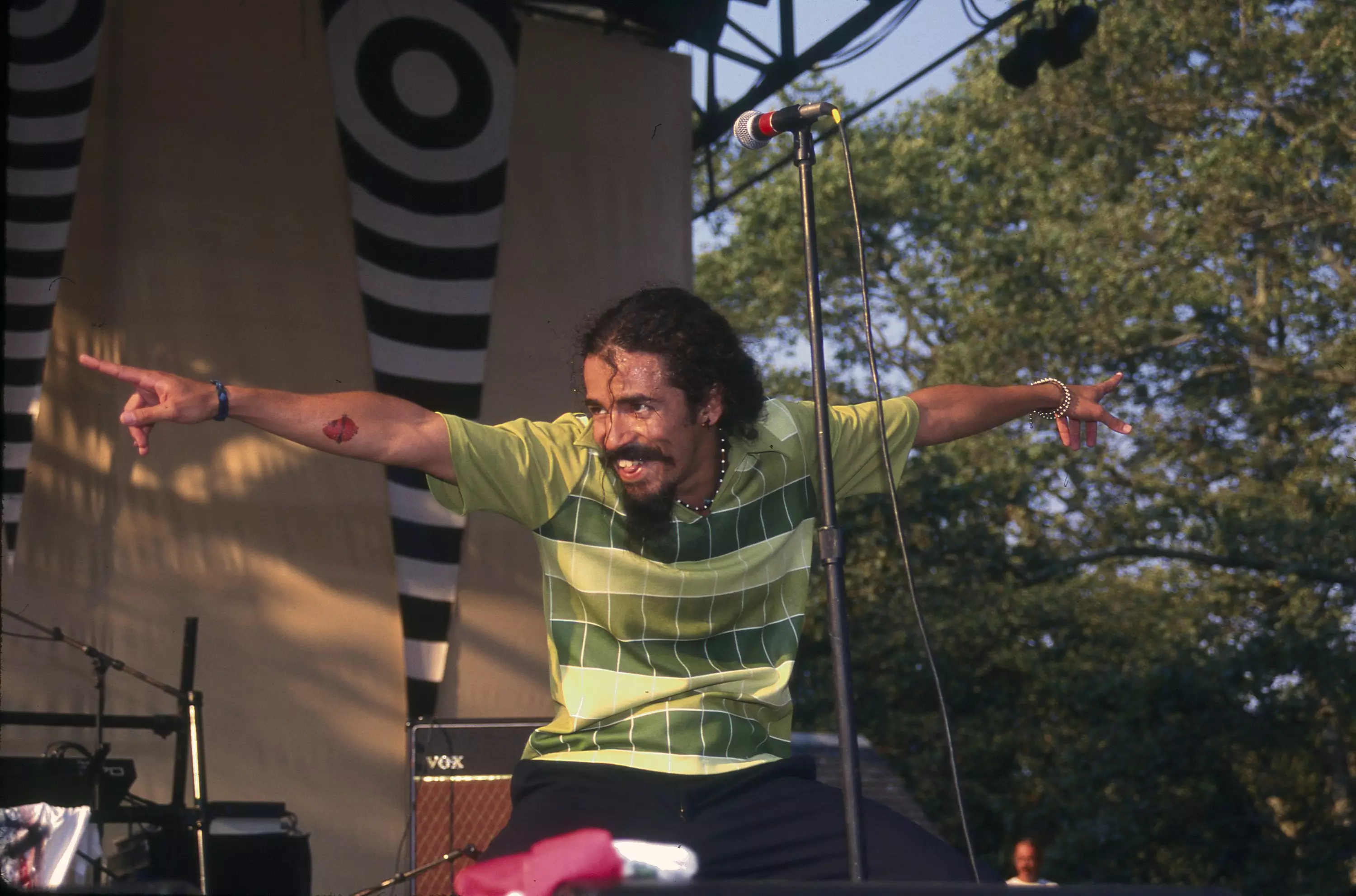
Revisiting 'Re': How Café Tacvba’s 1994 Masterpiece Changed Mexican Music Forever
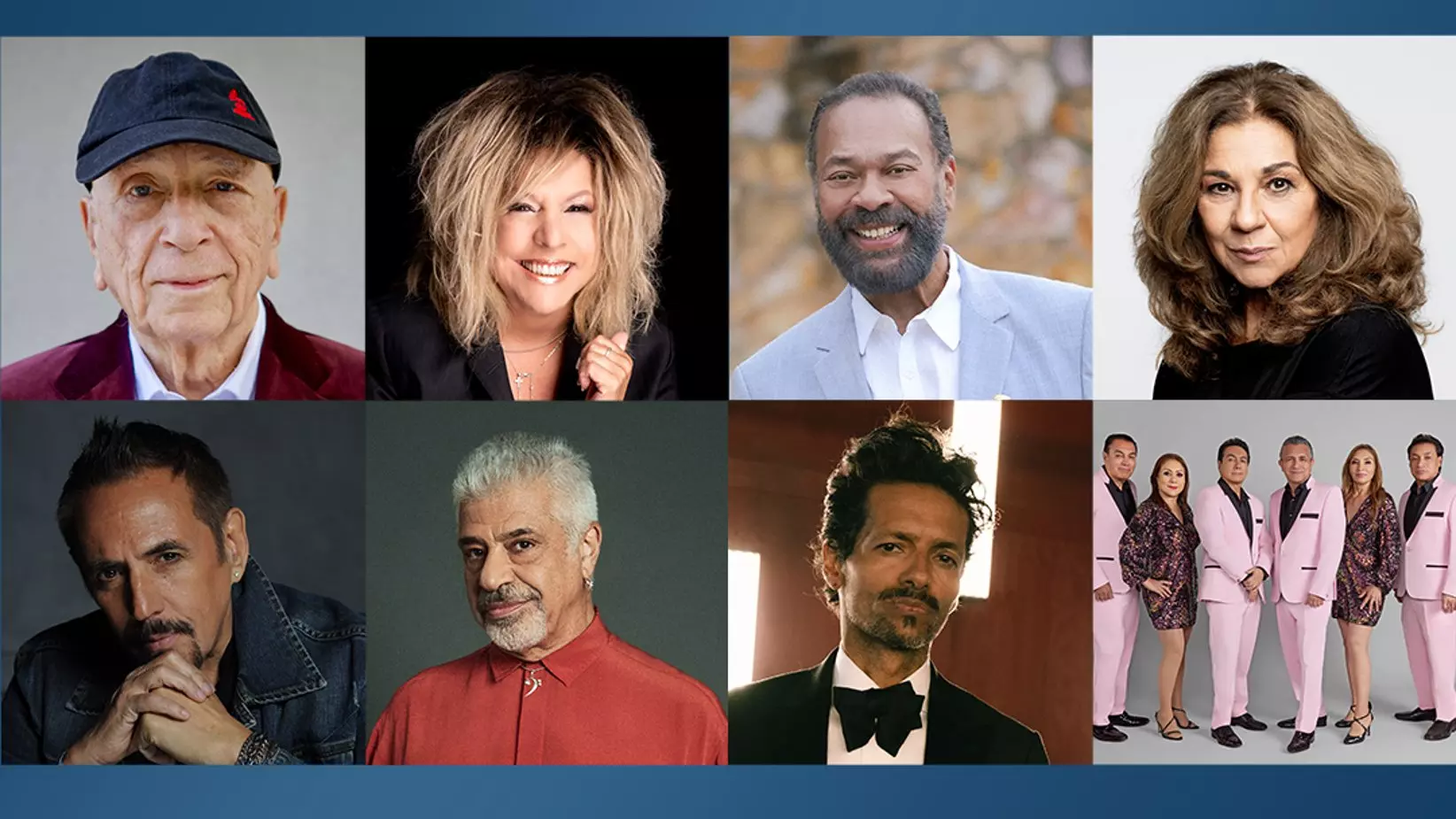
The Latin Recording Academy Announces 2024 Special Awards Recipients: Los Ángeles Azules, Draco Rosa, Albita, Lolita Flores & More
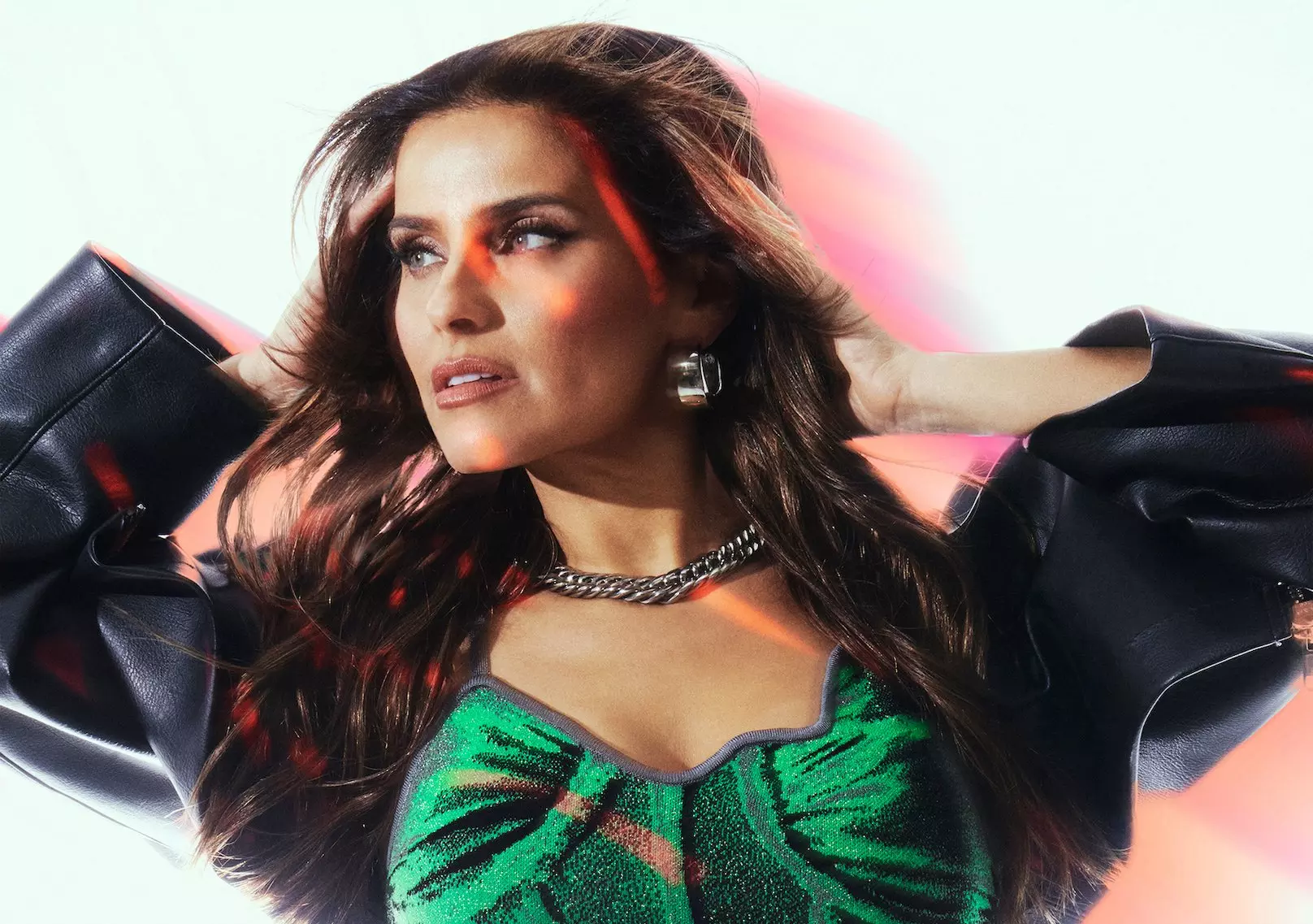
Nelly Furtado On How Remix Culture, ADHD & Gen Z Inspired Her New Album '7'
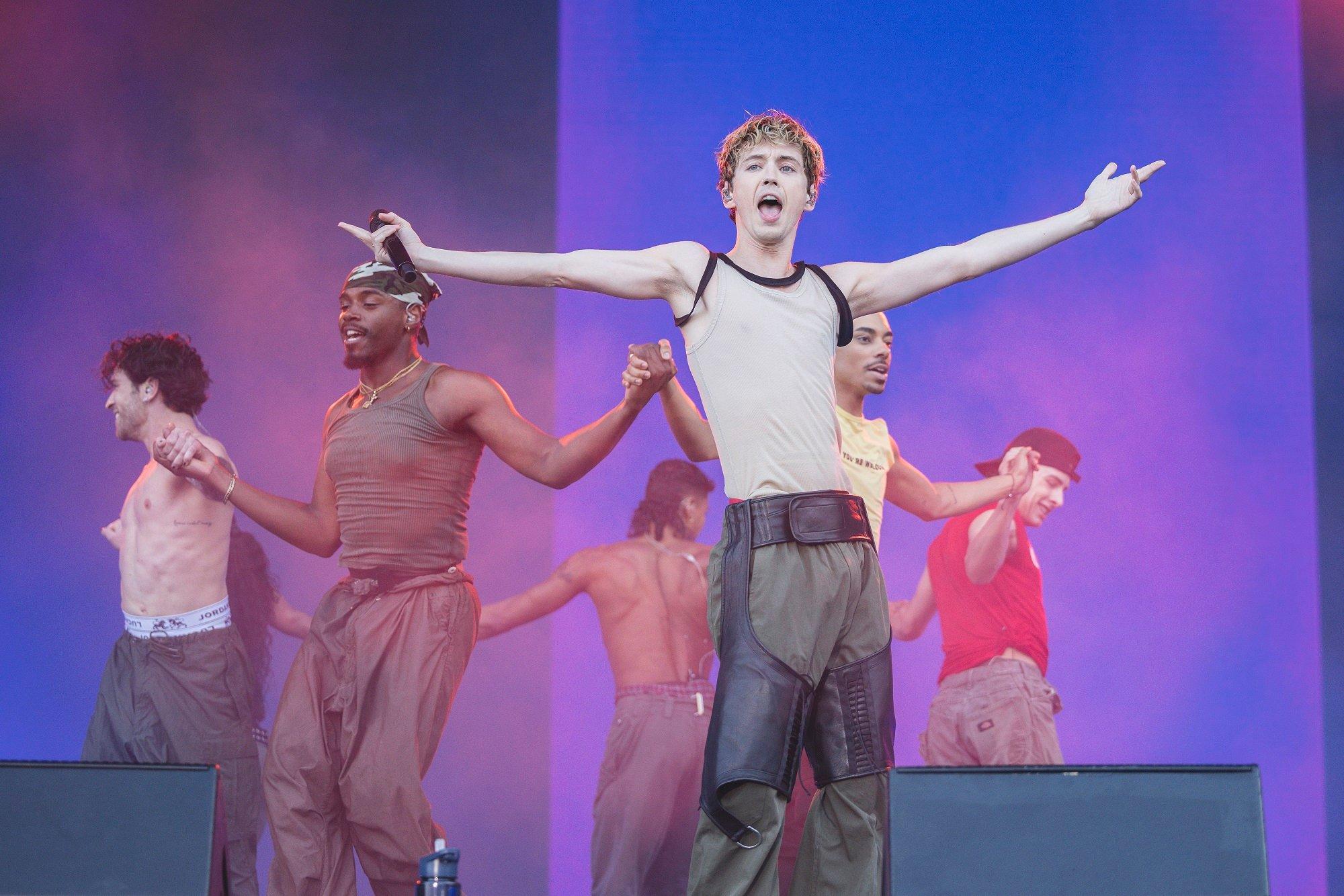
Photo: Xavi Torrent/Redferns
list
9 Outstanding Sets From Barcelona’s Primavera Sound Festival 2024: SZA, Amaarae, Charli XCX & More
Barcelona’s illustrious city festival celebrated 20 years of big music moments at Parc del Fòrum. From Vampire Weekend to Troye Sivan, read on for nine unforgettable sets from Primavera Sound 2024.
Primavera Sound is known for its heavy-hitting lineup and even bigger surprise guests. The Spanish festival celebrated 20 years in 2024, and transformed Barcelona's Parc del Fòrum into a masterclass of genre diversity and LGBTQIA+ inclusivity. There, under mostly sun-soaked skies, a wide range of international and native acts lit up multiple stages from May 29 - June 2.
Primavera Barcelona always promises an eclectic mix of performances that showcase native Spanish talent as well as major international headliners to get the party going. However, it’s not just the massive talent that pulls in the crowd. While the mainstages were graced by American superstars Lana Del Rey, SZA and Troye Sivan, the festival’s line-up was elevated by the vibrant non-stop DJ stylings of rising Brazilian star Clementaum and the divinity of Arca — who was rightfully labeled "madre!" by a buzzed up Boiler Room x Cupra activation.
Primavera Sound’s diverse lineup guaranteed a highlight for every kind of festival goer: from the dad rocker to the 20-something throwing themselves head-first into new music. The festival amped up the energy and was keen to ensure a safe space for all music lovers (including regularly signposting a pro-LGBTQIA+ "Nobody Is Normal" campaign). If you weren't in Barcelona to experience the magic happening at Parc del Fòrum, read on for nine highlights from Primavera Sound BCN.
Arca Delivers A Divine Boiler Room Performance
Drawing on heavy doses of electronica, pop and techno, Venezuelan producer and DJ Arca’s unpinnable sound is exactly what made her sets unmissable. Arca set Primavera alight with two incredible sets: an early morning rave on the Amazon Music Stage on May 31, and a second, more intimate event inside Boiler Room x Cupra’s industrial set up on June 1.
The musician's Boiler Room set brought the club to Barcelona, weathering attendees through a humid thunderstorm with sweaty, fusion beats and remixes (Beyoncé, Lady Gaga and Zedd) that made her experimental anthems even more exceptional.
Read more: 8 Essential Latin Electronic Releases: Songs And Albums From Bizarrap, Arca & More
Vampire Weekend Ignite Indie Nostalgia On Their Primavera Return
We all love a bit of Spanish sunshine, but nobody seemed quite as home on-stage as Vampire Weekend. Having last played at the festival in 2008, the 16-year wait was well worth it with a set list doused with indie rock nostalgia and new bangers that kept the late-night crowd grooving.
It’s not easy to keep a mainstage crowd going on opening night (especially as the band faced some line-up changes for the festival) but Vampire Weekend's catalog-spanning performance rocked. They ran though hits "A-Punk, "Campus" "Oxford Comma," and new tracks ("Classical", "Gen-X Cops", "Connect") from their new fifth album, Only God Was Above Us – a record which frontman Ezra Koeing described as "feeling perfect" on stage.
No Vampire Weekend set is complete with some curveball covers. This year, to match the beat of their long-overdue festival return, the band kept things fresh with an incredible cover of Sbtrkt’s "New Drop, New York" performed against a smokey, dark red stage backdrop. Whether performing their own catalog, making surprise appearance alongside French rock band Phoenix or dropping electric covers, Vampire Weekend prove they’re music more than hitmakers — they’re also a summer festival bucket list act too.
Troye Sivan Kept His Headliner Set Hot
Troye Sivan kicked off his mainstage set on Friday night dripping with innuendo. Replete with sexy outfit changes (including a pair of crotchless pants), effortlessly cool choreography and a very well-positioned mic in his pelvic region, the two-time GRAMMY nominee showed Barcelona that he not only has stadium-worthy tunes but is a stadium-worthy performer. Performing a medley of hits from his third studio album Something To Give You, Sivan's infectious pop tracks were perfectly timed to sexy and immaculately polished dance choreography (featuring his reliable backup dancer troupe of Simone Nolasco, Mauro van de Kerkhof, Benjamin Williams, Ainsley Hall Ricketts and Theo Maddix) against a campily creative set.
The singer yearned alongside Spanish musician guitarricadelafuente on a silver silk bed as they duetted "In My Room," and belted out Ariana Grande’s "supernatural" in front of a mesmerizing anime video backdrop. Whether it was intimately crooning to synth-pop summer banger "Honey" or throwback hit "1999," Sivan was undoubtedly a mainstage highlight. As he wrapped up his set, the singer shouted out Barcelona's art and culture as an inspiration for Something To Give You. The Primavera performance was one of the biggest shows of his life, and closed this set with his anthem queer hit "RUSH."
Yeule Opens Primavera With An Electric Set
Kitted out with tattoos, American flag-styled cargo trousers, a heather gray bikini top and chunky boots, yeule is exactly as you see them: an uncategorizable phenomenon. While their set clashed with major alt-metal and indie acts Deftones and Pulp, yeule’s distorted, glitchy universe was more than immersive; it was an electronic, energetic undertaking that swept the audience away. Away from the main stages, yeule’s set felt like a charged techo-pop portal to their world of emotional, alt-rock tunes.
Shaped by everything from nu-metal, Avril Lavigne and My Chemical Romance, yeule sounds neither human nor computerized. Often conceptualized as being something of a "cyborg identity," yeule's music translates with a darkly alluring style onstage. They opened with the melodic "Electric" from their second studio album Glitch Princess, while the rest of the setlist beautifully emulated their recent album Softscares; an emotional futuristic electro-pop record. The musician’s punk rock inflected "cybermeat," "sulky baby" and "dazies" were highlights, pulling the crowd closer to the stage as well as new listeners in from nearby smaller stages.
Performing against a flickering urban city backdrop illuminated the midnight sky, yeule's set created the perfect isolated, small-stage universe to hear their deafening screamo notes during "Bite My Neck" and the hauntingly mellow electro-rock closeout track "software update."
Clementaum Brings The Brazilian Party Spirit To The Boiler Room
The Boiler Room x Cupra stage was the place to be this year. While the Parc del Fòrum never fails to pull together an eclectic mix of talent, Primavera Sound truly thrived in showing its ability to channel the club, ballroom and EDM into a live festival setting. There was never a set that didn’t bring the festival goers in glam outfits and the ultimate dance party vibes. However, the raging techno beats of Clementaum that most caught our attention.
Playing to a packed room with festival-goers tightly crammed in even behind her decks, Clementaum led a chant ("Vai Brazil!") as her country’s flag was proudly waved in the crowd. Feeling more like a late-night rave, the Brazilian DJ had us thriving on deep beat drops and pummeling beats that you couldn’t help but dance to. Artfully skilled, Clementaum fuses Afro-Latin rhythms, ballroom culture and amped-up electronica for an incredible, heart-racing high.
The trance beat-packed El NICK DGO x Clementaum banger "Dale Pal Party" had everybody dancing, while a full-throttle remix of "Puttuna" pushed things into another level. However, her live rendition of "Pirigótika" (a track with Brazilian singer Bibi Babydoll) was her hallmark performance, and proved that if you haven’t heard of Clementaum, be sure this won’t be the last time you come across her name.
Amaarae’s Captivating Set Can't Be Boxed In By Genre
There’s nothing Amaarae can’t do. Taking over the Amazon Music stage on May 30, the Ghanaian American Afrobeats musician can take on anything from punk to R&B. In Barcelona, Amaarae’s chameleonic talent showcases that no style (or genre) is too much for her to turn into a captivating set.
Amaarae proved that whatever mood she brings to stage, she devours, from effortlessly performing slow burner "Wasted Eyes" to silkily switching to "Disguise," a song of desire and domination, and segueing to alternative anthem "Sex, Violence, Suicide."
Learn more: Meet The Latest Wave Of Rising Afrobeats Stars: AMAARAE, BNXN, Oladapo & More
Charli XCX Proves Her Pop Legacy For Primavera’s Final Night
Nobody throws a party like the ultimate "it" girl Charli XCX. From ranging pop bangers ("I Love It" to "Party 4 U"), the British pop star kept crowds dancing until 4 a.m. — and for good reason. While fans weren’t frightened away by heavy rain and thunderstorms during the festival’s final night, Charli XCX and her fans made Primavera’s final night one to remember.
And, if you were lucky, you might’ve caught the star pull off an incredible surprise DJ set alongside co-collaborator A.G Cook, and finance The 1975 band member George Daniel. While the early announced pop-up set for her upcoming sixth studio album Brat fell just outside of the festival on Sunday, the sweaty beach-side crowd was packed with fans flocking from Primavera Sound to make sure they got their early hit of Charli XCX ahead of her mainstage set later that night.
Ethel Cain Gets Political (And Personal)
Following the breakthrough of her sophomore album Preacher’s Daughter, Ethel Cain has been on an unstoppable rise. A goth-pop mix of Lana Del Ray and heartland-style emo rock, the Tallahassee-born musician is crafting her own Americana aesthetic shaped by desire, death and South Baptist Christian influences.
While playing a late afternoon set, the singer stepped out under the blazing sun delivering incredible vocals to fan favorites "Crush’’ and "House of Nebraska." The singer’s set highlights were elevated by two things: a new song and a political call-out that broke the divide between the festival crowd and on-stage artist. Dressed in a ‘Free Palestine’ t-shirt and with a keffiyeh hanging from her mic, the musician denounced genocide and advocated for the people of Gaze before launching into her viral anti-pop song, "American Teenager."
Amidst her anti-war advocacy, the singer also slotted into a somber new song "Amber Waves," showcasing her penchant for eerie melodies and what fans can expect on her currently untitled upcoming project.
Learn more: 15 LGBTQIA+ Artists Performing At 2024 Summer Festivals
SZA Brings Stardom, Swords & The Splits To 'SOS' Set
Whether it’s the instantly recognizable intro to "Good Days" or the viral rotations of "Kill Bill," SZA has long been dominating and driving contemporary pop and R&B. The GRAMMY winner highlighted her artistic versatility with deep cuts and chart hits (including those from her massively popular sophomore album SOS) to a packed mainstage crowd.
With a stage set designed to look like a ship, SZA was amplifying the message of SOS loud and clear – with hits, charismatic stage movements and impressive vocals to match. And, she didn’t stop there. From knife play routine to "Kill Bil" to full-throttle Miley Cryus-style and riding an anchor to dropping the splits mid-set, SZA gave a performance that continuously raised the bar.
Read more: How 'SOS' Transformed SZA Into A Superstar & Solidified Her As The Vulnerability Queen
Music Festivals 2024 Guide: Lineups & Dates For Lollapalooza, Coachella, Bonnaroo & Much More
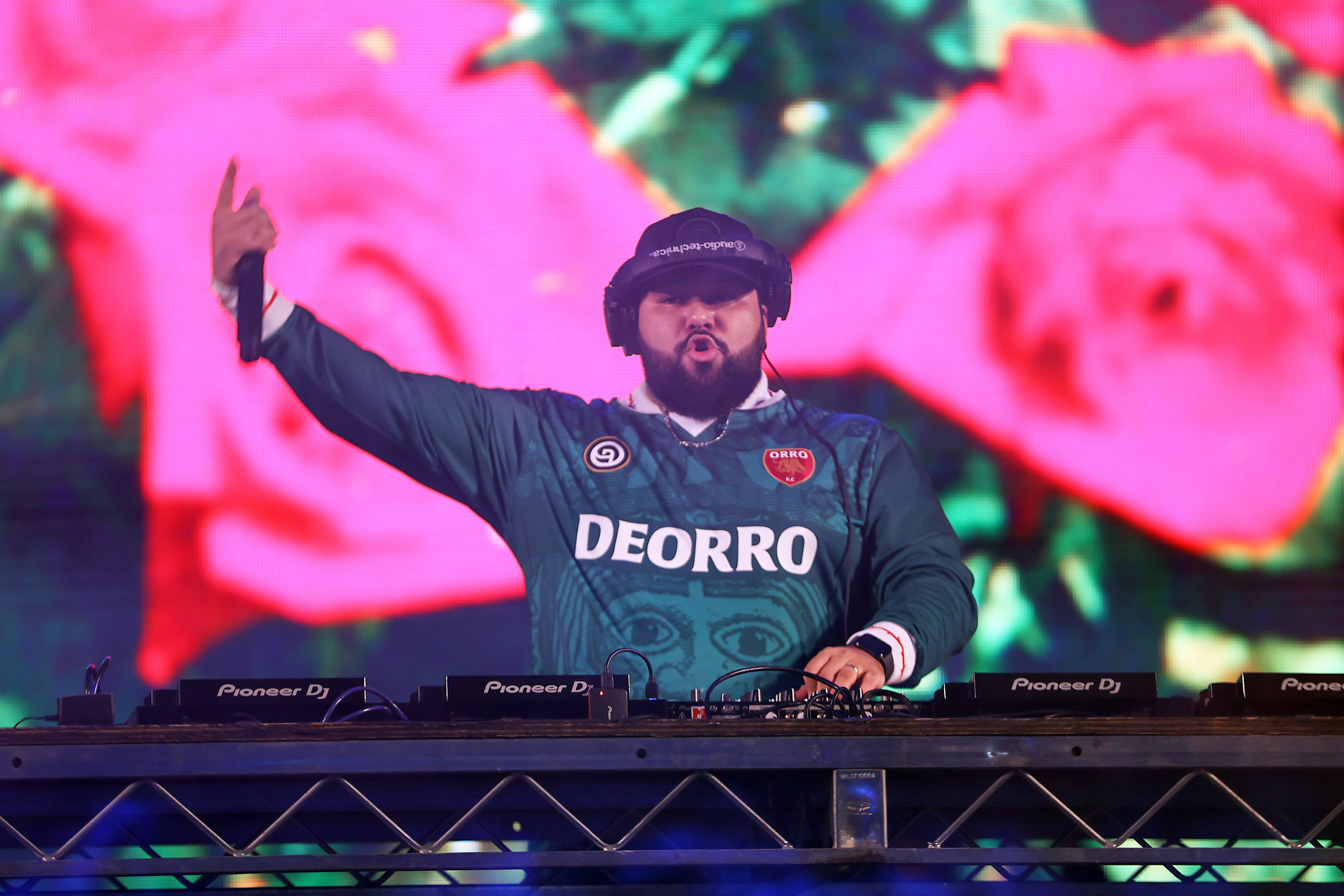
Photo: Omar Vega/Getty Images
list
8 Essential Latin Electronic Releases: Songs And Albums From Bizarrap, Arca & More
Electronic sounds can be heard throughout Latin music and will be recognized in a new Field and Category at the 2024 Latin GRAMMYs. In honor of the new Best Latin Electronic Music Performance award, read on for eight Latin electronic music essentials.
Electronic music is embedded within the diverse world of Latin music and, for the first time, will be recognized in a new Field and Category at the 2024 Latin GRAMMYs. Within that field, the award for Best Latin Electronic Music Performance was created to shine a light on DJs, producers, and artists blending proudly blending electronic music with the sounds of their cultures.
Electronic music embodies various subgenres like house music, techno, trance, electronica, and many others rooted that have been popularized by DJs and producers. Latin artists have long enriched those subgenres: Mexico's Belanova globalized the electro-pop wave, while Bomba Estéreo blended cumbia with electronica in Colombia.
The explosion of EDM in the 2010s also allowed the careers of Latinx DJs to flourish. Mexican American DJ Deorro has showcased both cultures during sets at music festivals like EDC, Coachella, Tomorrowland, and more. Arca's music pushes the boundaries of electronic music through a Venezuelan and Latin American lens. More recently, Colombian producer Víctor Cárdenas bridged the gap between EDM and reggaeton with the global hit "Pepas" by Farruko. Since then, electronic music has seeped through the work of Latin hit-makers like Tainy, Caleb Calloway, Bizarrap and Diego Raposo. "Pepas" and many of Bizarrap's music sessions crossed over onto Billboard's Hot Dance/Electronic Songs.
"That’s something that’s very big for us," Deorro tells GRAMMY.com about the new category. "How beautiful that this is happening, because it shows that what we’re doing is working, we’re breaking down doors, and we’re creating more opportunities for artists like us in the future."
In honor of the Latin Recording Academy's new Field and Category, here are eight must-hear Latin electronic music essentials.
Belanova - Cocktail (2003)
Belanova revolutionized the Latin music space with their 2003 debut album Cocktail, an atmospheric LP that seamlessly blends Latin pop with electronic music. In the dreamy deep house of "Tu Ojos," singer Denisse Guerrero sang about getting lost in her lover's eyes. The trippy techno of "Barco De Papel" was reminiscent of the music from Madonna's Ray of Light album. Electronic music on the ambient level wasn’t common in Latin music until Belenova changed the game in Mexico, which later reverberated into the rest of Latin America and the U.S.
The trio — which includes guitarist Ricardo Arreol and keyboardist Edgar Huerta — later delved into electro-pop on 2007's Fantasía Pop, which won a Latin GRAMMY for Best Pop Album by a Group or Duo the following year.
Arca - Kick I-II (2020)
Venezuelan producer/artist Arca is a pioneer in the Latin electronic music space. Arca first began producing her experimental electronica in Spanish with her 2017 self-titled album.
Arca then masterfully mixed the diverse sounds of Latin America and beyond with EDM throughout her Kick album series.
For Kick I, she combined Venezuelan gaita music and reggaeton with a cyberpunk edge in "KLK" featuring Spanish pop star Rosalía. Arca then blended electronica with neo-perreo on Kick II's "Prada" and "Rakata." Both albums garnered Arca GRAMMY and Latin GRAMMY nominations.
As a trans and non-binary artist, she is also breaking boundaries for the LGBTQ+ community in the genre. Arca is just not creating more space for queer artists in Latin music, but also in EDM at large by embracing the totality of herself in song.
Bomba Estéreo - Deja (2021)
Bomba Estéreo, which is comprised of core members Simón Mejía and Liliana "Li" Saumet, has masterfully melded the music of Colombia’s Caribbean coast with electronic music. Since breaking out in 2008 with their sophomore album, the group has often reimagined the African and Indigenous rhythms of their country like cumbia through dance music. Bomba Estéreo’s folkloric approach to EDM has led to collaborations with Bad Bunny, Tainy, and Sofi Tukker.
In 2021, Bomba Estéreo released its most ambitious album Deja, which garnered a GRAMMY and Latin GRAMMY nominations. The title track put a funky spin on the band's signature electro-tropical sound. House music collided with the Afro-Colombian rhythms of champeta in "Conexión Total" featuring Nigerian singer Yemi Alade. Their album that was based on the four classical elements was a breath of fresh air in the Latin music scene.
Bizarrap - "BZRP Music Sessions #52" (2022)
Argentine producer Bizarrap launched the BZRP Music Sessions on YouTube in 2018, first remaining behind the console for freestyle rapping sessions with local acts. The sessions quickly went viral, and have featured increasingly larger names in music.
Over the past five years, Bizarrap worked elements of electronic music into his hip-hop productions. In 2022, he fully delved into EDM with his global hit "BZRP Music Sessions #52" featuring Spanish singer Quevedo. The traptronica banger peaked at No. 4 on Billboard's Hot Dance/Electronic Songs and earned Bizarrap his first Latin GRAMMY Award.
Since then, his music sessions have become a global event. Bizarrap later infused electro-pop with a trap breakdown in "BZRP Music Sessions #53" with Shakira, which garnered him two more Latin GRAMMY awards.
Javiera Mena - Nocturna (2022)
Javiera Mena first debuted as an indie act in 2006 with Esquemas Juveniles. With that freedom as a producer and artist, the Chilean star pushed Latin music into the electronic space with her 2010 album Mena.
She fully immersed herself into Latin electronica on her latest album, 2022's Nocturna — an album filled with nighttime club bangers that invite everyone to dance with her. Mena also proudly sings about being part of the LGBTQ+ community in the alluring "La Isla de Lesbos" and the fierce house music of "Diva" featuring Chico Blanco. Considering the influence of queer artists in the formation of electronic genres like house, it’s refreshing to see an artist like Mena remind people of those roots and bring that into Latin music.
Deorro - Orro (2022)
Mexican American producer Deorro has established himself as one of the world's top DJs, and is known for mixing both of his cultures into his music festival sets. Even before the música mexicana explosion last year, he was one of the first mainstream EDM acts to bring the genre to music festivals around the world through his songs and remixes.
With his debut album, 2022's Orro, Deorro fully bridged música mexicana with house music. He collaborated with Latin acts like Mexico's Los Tucanes De Tijuana and Maffio in "Yo Las Pongo," which blended the band's norteño sound with EDM. Deorro also explored cumbia with deep house in the sweeping "Dime" featuring Los Ángeles Azules and Lauri Garcia. In his recent sets, he is spinning a fiery remix of "Ella Baila Sola" by Eslabon Armado and Peso Pluma
Sinego - Alterego (2023)
Sinego first broke through in 2019 thanks to his house bolero sound like in "Verte Triste," which put a refreshing spin on an age-old Cuban genre. With traditional genres within the Latin diaspora often falling to the wayside as the years go on, he is reintroducing them to new audiences through EDM reimaginings.
For his debut album, 2023's Alterego, the Colombian producer pushed his electronic music to another level. Sinego traveled to different Latin American countries and Spain to record with local musicians, reimagining genres like cumbia, tango, and mambo through Sinego's EDM lens. With the sultry "Mala," he blended Venezuela's variation of calypso with house music. He also gave Brazilian samba a house music makeover in "Boa Noite" featuring Tonina.
Diego Raposo - Yo No Era Así Pero De Ahora En Adelante Sí (2023)
Dominican producer Diego Raposo has helped Latin acts like Danny Ocean, Blue Rojo, and Letón Pé embrace elements of electronic music. In 2018, Raposo released his debut album Caribe Express, which demonstrated his knack for mixing the sounds of the Caribbean with EDM.
Raposo took that inventive mix into overdrive with last year's Yo No Era Así Pero De Ahora En Adelante Sí. The otherworldly "Si Supieras" featuring Okeiflou blended house music with reggaeton, while "Al Contrario" with Akrilla aggressively mixes drum 'n 'bass with dembow. Rapaso also channels Dance Dance Revolution-esque electronica in the spellbinding "Quédate" with Kablito.
7 Latin DJs To Watch In 2023: Gordo, Arca, The Martinez Brothers & More
